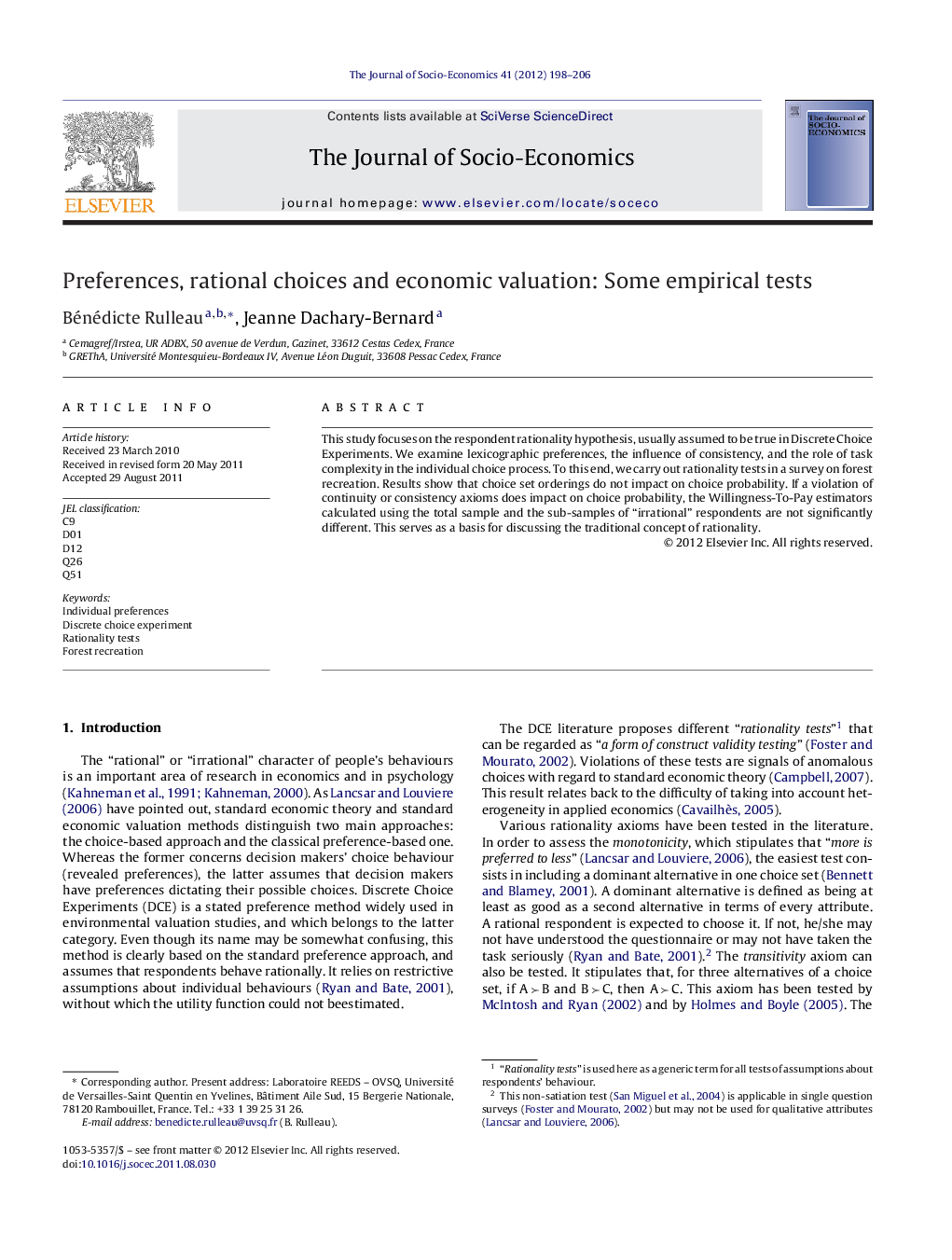| Article ID | Journal | Published Year | Pages | File Type |
|---|---|---|---|---|
| 970041 | The Journal of Socio-Economics | 2012 | 9 Pages |
This study focuses on the respondent rationality hypothesis, usually assumed to be true in Discrete Choice Experiments. We examine lexicographic preferences, the influence of consistency, and the role of task complexity in the individual choice process. To this end, we carry out rationality tests in a survey on forest recreation. Results show that choice set orderings do not impact on choice probability. If a violation of continuity or consistency axioms does impact on choice probability, the Willingness-To-Pay estimators calculated using the total sample and the sub-samples of “irrational” respondents are not significantly different. This serves as a basis for discussing the traditional concept of rationality.
► We apply Discrete Choice Experiments to forest recreation services. ► We study respondents’ choices with regard to rationality hypothesis. ► Rationality tests are used to discuss continuity, consistency and task complexity. ► The total sample WTP and the lexicographic sub-sample WTP estimators are calculated. ► Our results show that these WTP are not significantly different.
